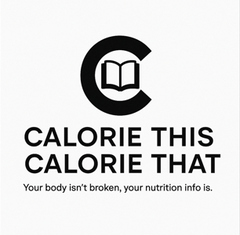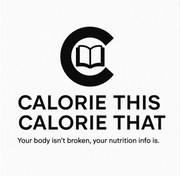Why Most Diets Fail (And How to Fix It)

Tried keto, paleo, intermittent fasting or yet another trendy plan – and ended up right back where you started? You’re not alone. Almost everybody has been lured in by a promising diet only to get frustrated later. In fact, research shows the vast majority of people who diet regain all (or more) of the weight they lost. Less than one in five keep off even 10% of their weight after a year. It’s tempting to blame the diet or ourselves, but the truth is deeper: our biology, psychology and habits are often working against those “perfect” meal plans.
Your body thinks you’re starving. When you slash calories, your body goes into conservation mode. Losing weight means losing muscle and fat, which lowers your resting metabolic rate. Your body literally needs fewer calories to stay alive. As Cornell nutrition experts explain, “Since you weigh less after dieting, your metabolism is slower, and so you regain the weight with normal eating.” That means that if you go back to your old eating habits, those same calories feel like overeating. To add insult to injury, hormones go haywire: hunger signals (ghrelin) spike and satiety signals (leptin) fall, making you feel ravenous. In short, your body fights back — it’s trying to regain fat and keep you alive.
Rigid rules lead to rebound binges. On the mindset side, we often set ourselves up for failure by demonizing foods or setting black-and-white rules. Think “no carbs ever” or “only green smoothies.” A study in Appetite found that people told to completely avoid their favourite treats for a day wound up eating about 133% more of them when the ban lifted. In other words, label something as forbidden and suddenly you must have it. This is classic “forbidden fruit” psychology: depriving yourself of pizza or ice cream makes your brain obsess over it, so when you inevitably cave, you overeat. Add all-or-nothing thinking – like “I blew my diet on lunch, might as well eat the whole cake” – and it’s no wonder diets crash. Psychologists even call this the “false hope syndrome,” where unrealistic diet promises set us up to fail. You’re not weak or lacking willpower – this rebound effect is proven by science.
Most quick-fix diets also ignore real life. There are no shortcuts. Crash diets can yield fast results, but they rarely last. A Psychology Today summary notes, “Any weight you’ve gained did not appear overnight, and it will not disappear overnight… Few people in the diet industry are prepared to admit this: There are no shortcuts.” On average, strict diet plans only last a month or two before people quit and slip back into old habits. Work stress, family dinners, late nights and travel all tug us back to familiar routines. Trying to live on 800 calories of chicken broth at work and then bingeing on nachos at home is a recipe for setbacks. Diet attempts often fade out quickly – one review even found weight loss attempts typically lasted only about 4–6 weeks before giving up. Short-term fixes simply yield short-term results.
It’s not the diet – it’s how you do it. The good news is almost any sensible eating plan can work if you stick with it. Research repeatedly finds no magic solution locked in any single diet. Studies show people lose weight on low-carb, low-fat, paleo, vegan or fasting plans in the short run, but in the long run most end up regaining. For example, a UCLA meta-review found that 1 to 2 out of 3 dieters eventually gained back more weight than they lost. Similarly, Harvard Nutrition experts note that intermittent fasting had no significant advantage over regular calorie restriction in controlled trials. In practice, the winner is usually the diet you can tolerate: what matters is adherence, not the name of the plan.
So how do you fix the cycle? Make your approach flexible and sustainable. Here are some science-backed tips:
-
Be flexible. Rigid diets destroy motivation. As one researcher puts it, “Diet flexibility is key to making weight loss and maintenance sustainable.” Allow occasional treats, swap foods you hate for ones you love, and adapt the plan to your life. If keto feels impossible, try a moderate low-carb or Mediterranean-style approach instead.
-
Focus on whole foods. Build your meals around veggies, fruits, whole grains, lean proteins and healthy fats (see Harvard’s Healthy Eating Plate. Minimize ultra-processed junk simply by choosing recipes you enjoy. Eating real food helps you stay full and nourished, rather than obsessing over points or numbers.
-
Include protein and fibre. These nutrients help you feel satisfied longer. High-fibre veggies and protein-rich foods (meat, beans, eggs, dairy, tofu) can curb hunger naturally. University of Illinois nutritionists recommend tailoring your own plan with plenty of protein and fibre – it helps people stick with it longer.
-
Keep portions reasonable. You don’t need to eat tiny food or dread every meal. Learn what a healthy portion looks like (for example, a fist-size serving of carbs or a palm of protein) and gradually adjust amounts. Sometimes tracking calories or using smaller plates for a few weeks can kickstart awareness.
-
Manage mindset and triggers. When you feel tempted, pause – drink water, take a walk, or distract yourself for 10 minutes. Remember that one lapse isn’t a catastrophe. Plan for events: it’s fine to enjoy a birthday cupcake; just get back to normal afterward without guilt. Avoid thinking in terms of “good” vs “bad” foods.
-
Build supportive habits. Sleep enough and move your body daily – they both help regulate appetite hormones and mood. Practice mindful eating (chew slowly, savour flavours) so you recognize fullness signals. Cook simple meals at home a few times a week. Small habits like bringing lunch to work or setting a regular sleep schedule add up over time.
In other words, ditch the diet mindset (“This has to be perfect or I’m failing”) and adopt a lifestyle mindset (“I’m learning sustainable habits”). Even Harvard’s experts note that diets are about eating patterns you can sustain, not about torturing yourself. Lose weight a little at a time, celebrate non-scale wins (more energy, better mood, clothes fitting) and adjust as needed.
Final Thoughts
-
Flexibility over rigidity. The name of the diet matters less than whether you can realistically follow it. Flexible plans with occasional treats beat strict plans that make you feel deprived.
-
Think long-term, not quick-fix. Our bodies adapt to calorie cuts and will always try to regain lost weight. Expect gradual progress, not overnight miracles.
-
You’re not broken — the diet might be. Almost any diet can work if it fits your life and you stick with it. Work with your biology and psychology, not against them, by building healthy habits you enjoy.
If this helped clarify things, our full e-book breaks it all down — no fluff, no fads. Get it here: Calorie This Calorie That E-Book.

